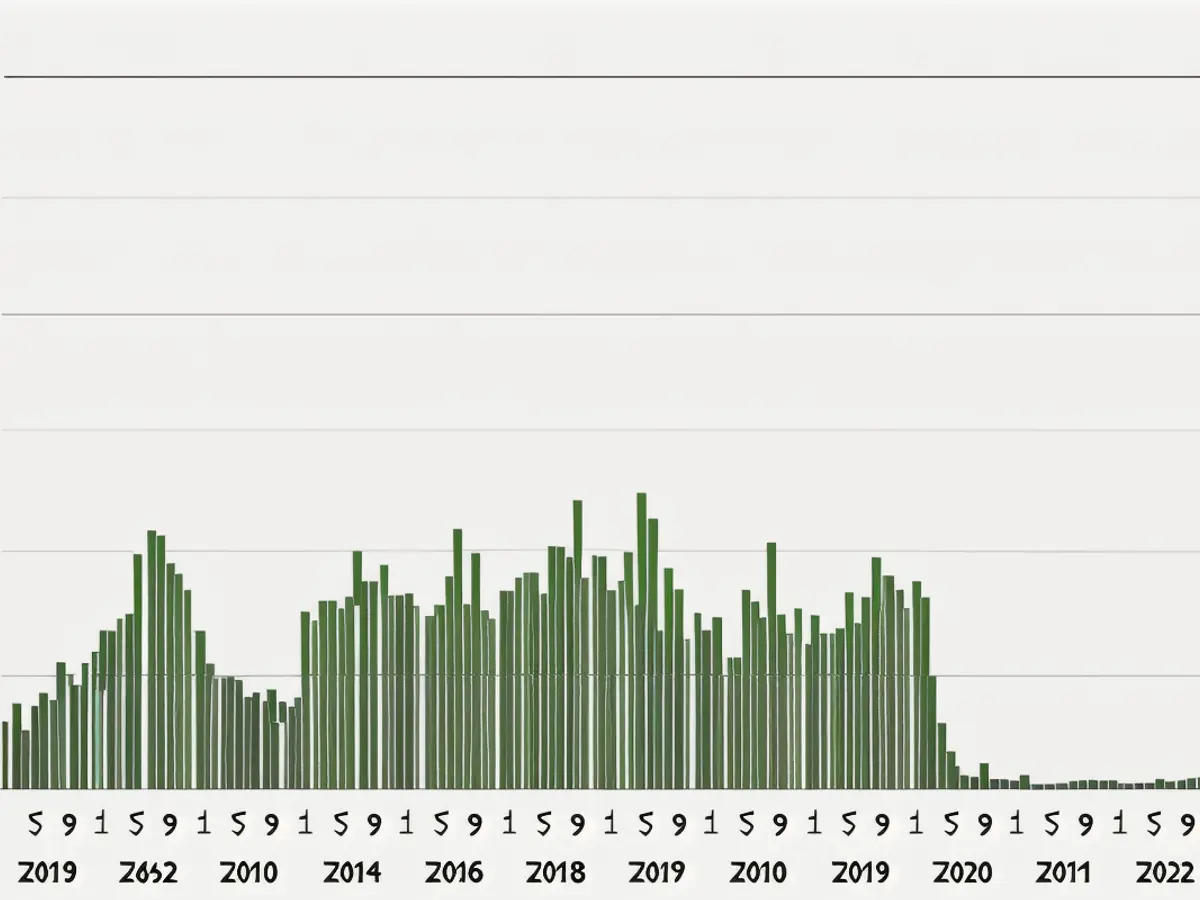Who does whooping cough pose a significant threat to?
Experience coughing fits, wheezing and shortness of breath: A significant number of individuals in Germany and Europe are currently infected with whooping cough. This illness is especially harmful to specific groups of people. However, there are measures you can take to safeguard yourself.
A violent, spasmodic cough that makes the whole body shake: A high number of individuals in Germany are getting sick with whooping cough - a trend that's being observed across Europe. By mid-May, over 4,500 cases had been reported to the Robert Koch Institute (RKI). In 2023, there were only about 1,500 cases during the same time frame. Why is this happening? How can you prevent it? And who is at greater risk?
What causes this increase?
There may be several factors contributing to the upsurge. According to pediatrician and epidemiologist Viktoria Schönfeld from the RKI, "There are natural fluctuations that result in significantly higher numbers every three, four, or five years. It's possible that we're now experiencing something like this." Schönfeld also attributes this to catch-up efforts after the COVID-19 pandemic and more regular testing for whooping cough.
What are the symptoms of whooping cough?
The RKI states that whooping cough, a highly contagious disease, progresses through three stages in unvaccinated individuals: In the first one to two weeks, symptoms resemble a common cold, such as a runny nose and mild cough, along with mild or no fever.
In the second stage, which lasts four to six weeks, severe coughing fits with wheezing while inhaling and shortness of breath occur. In addition, the coughing fits may be followed by retching and vomiting, particularly in small children, and fever is uncommon in this phase.
In the third stage, the symptoms begin to subside, but the cough may persist for months.
What are the potential complications?
The most common complication of whooping cough, according to the RKI, is pneumonia. Up to 10% of infected infants and older adults suffer from this condition. Other possible complications include sinus and ear infections, incontinence, hernias, and rib fractures during intense coughing fits.
What's the incubation period for whooping cough?
The RKI states that the incubation period - the time between when the pathogen enters the body and the first symptoms appear - typically lasts nine to ten days.
How is whooping cough transmitted and for how long are you contagious?
Whooping cough(pertussis) is transmitted through droplet infection, mainly when someone sneezes, coughs, or talks. The most contagious period is during the first two weeks of the infection and can last up to five weeks after the onset of the disease.
Who is at higher risk?
Adolescents, adults, and most vaccinated children typically experience a long-lasting cough from whooping cough. However, complications can arise in people with pre-existing medical conditions, the elderly, and newborns. "Whooping cough is particularly dangerous for infants, especially those under six months old," explains RKI expert Schönfeld. "When infants become ill, many of them are admitted to the hospital for observation or treatment. The danger with infants is that they may not notice a cough, but instead stop breathing. This is what makes it so hazardous." Fortunately, death from whooping cough is rare in Germany.
How is whooping cough treated?
Antibiotics are often used in treatment, but their effectiveness is limited to the first three weeks of the infection. The Professional Association of Pediatricians advises frequent hydration and fresh air to combat the cough, which can last for months. "Regular inhalations with sea salt and warm chest compresses with lemon juice before bedtime are considered home remedies that somewhat alleviate the symptoms," the association's website also mentions.
How is whooping cough prevented and how long does the immunity last?
The STIKO (Standing Committee on Vaccination) recommends vaccination for all children and infants, with three doses given throughout their first year of life in the form of a vaccine against tetanus, diphtheria, and whooping cough. Boosters are also required during pre-school and adolescence and in adulthood to maintain protection.
Since March 2020, the STIKO has advised that all pregnant women be vaccinated against whooping cough during the third trimester - regardless of their last booster. If there is a risk of premature birth, the vaccination should be given during the second trimester of pregnancy. This is to provide a protective environment for the newborn child, which lasts until their first vaccination.
Does a whooping cough infection provide lifelong immunity?
The RKI stresses that a whooping cough infection does not lead to lifelong immunity. People who have recovered are protected from future infections for a maximum of ten to twenty years.
If you've come down with whooping cough, you might be wondering about the quarantine situation. As it turns out, whooping cough is considered a notifiable disease. As per the Federal Center for Health Education (BZgA), there are certain precautions to take to prevent spreading the illness to others.
kids and adults with whooping cough (or if they're thought to have it) are not allowed to visit or work in places where people gather, like schools or nurseries. They need to let the community facility know about their condition. Typically, they can return to these places five days after starting antibiotic treatment or confirming they don't have the disease through a swab, provided their health allows it. Without medical intervention, they can come back three weeks after the onset of the cough.

Read also:
- This will change in December
- Dikes withstand water masses so far - Scholz holds out the prospect of help
- Fireworks and parties ring in 2024 - turn of the year overshadowed by conflicts
- Attacks on ships in the Red Sea: shipping companies avoid important trade route
The increased number of whooping cough cases in Germany and Europe is being closely monitored by the Robert Koch Institute (RKI), a German organization that specializes in infectious diseases. According to the European Centre for Disease Prevention and Control (ECDC), whooping cough poses a significant threat to unvaccinated individuals, particularly infants under six months old, as they are at higher risk of severe complications and hospitalization.
Source: www.ntv.de







